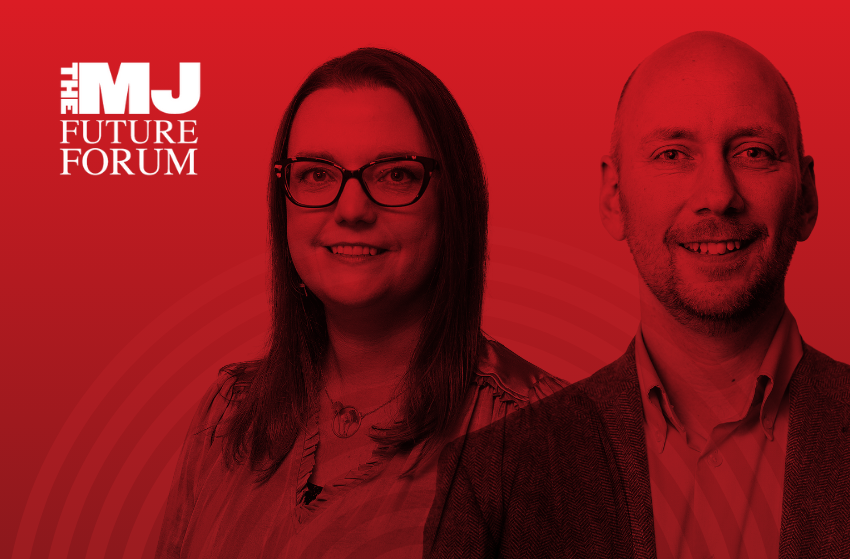Ahead of the The MJ’s Future Forum Midlands, Frazer Thouard spoke to Paul Marinko about the leadership behaviours we see in successful Local Government chief executives; where strengths and risks lie; and the importance of knowing your own derailers, as well as your teams.
A big thank you to colleagues Seb Lowe and Marie Blakesley who delivered this session in Stratford upon Avon, and to both Balvinder Kaur H. and Stephen Gabriel who joined us on stage to share more about their own leadership journeys, as well as Mike Burton for fielding the questions from the audience.
There is little doubt local government is going through a period of tumult certain to be defined as historic. While two-tier areas grapple with what ‘best’ looks like in terms of new structures, regions dominated by unitaries continue to adjust to the impact of combined or strategic authorities. Yet, for all the focus on structure and function, little is currently being considered about the personalities that will thrive at the top of councils in this brave new world.
Step forward recruitment specialists GatenbySanderson, who have crunched the data to pinpoint the personality traits that could derail or power success for the modern chief executive. The good news is that the data reveals public sector chiefs appear less susceptible to ‘derailment’ than their counterparts in global and private organisations. Using 11 dispositions examined in personality questionnaires, the research indicated the most common derailer was ‘imaginative’, highlighting a tendency toward curiosity and agility, qualities that, while valuable, may lead to impracticality if not well-managed.
While the upside of ‘imaginative’ links to being inventive, ideas-oriented and strategic, the downsides include over-confidence in problem-solving and a belief that others can’t understand complex issues. Indeed, the trait most likely to exhibit in unsuccessful candidates for the top job is being ‘bold’, something that scuppers the aspirant chief who comes across as over-confident and resistant to feedback. A key context identified in the research is the need for council chiefs to engender trust, with Office of National Statistics’ data revealing just 34% of the public feel this way about local government leaders.
Frazer Thouard, practice lead, local government, at GatenbySanderson adds:
“If you put trust into the context of change and transformation as a leader you’ve got to be believable and have a workforce that believes what you’re saying.”
And the rising need for councils to collaborate with other organisations means chief executives also need to navigate a complex mix of shared objectives and limited resources. Furthermore, chiefs showed less tendency than their counterparts in global organisations towards anxiety and insecurity, both of which interfere with the ability to relate successfully to others. The same applies to ‘acquiescence’, a characteristic that may be unhelpful at this level of seniority.
The assumption drawn by GatenbySanderson is that councils tend to reward those who put themselves forward, speak up, engage readily and are calm and consistent.
Thouard expands:
“Social heart and commercial head is our term to describe that difficult balance between delivering customer-centric services at the most efficient price is a relative weakness across local government, though stronger in chief financial officers. This need to bring commercial realism without losing sight of customer needs and experience will be increasingly relevant as chief executives navigate future reorganisation.”
When it came to the traits that separate chief executives from their director-level colleagues, ‘mischievous’ and ‘colourful’ were the potential derailers most prevalent in officers at the top of the organisation. Colourful relates to enjoying being in the spotlight, being energetic, gregarious and ideas-oriented but has a potential dark side around being too self-absorbed, unwilling to listen to feedback or becoming overly dramatic. Mischievous relates to being charming but prone to seeking out excitement and risks. Individuals with derailers in this area can potentially be seen as lacking sincerity or showing a casual disregard for others.
With chiefs being seen to need to be engaging, inspirational, influential and impactful – which arguably are the flipside to colourful and mischievous, it suggests that the positives of these traits outweigh the risks in council careers. It’s worth noting that for local government leaders as a whole, not just chief executives, ‘imaginative’ comes out as the standout most common derailer. This brings positives for new and fresh ideas for transformation, but also the potential for being too ‘out there’ or failing to bring others with them along that transformation journey.
And Thouard sums up the nutshell point:
“Every single leader has derailers. It’s about awareness.
If you don’t know what they are it kicks you off course when the pressure’s on. And the pressure’s always on in the sector at the moment.”
Frazer Thouard and Marie Blakesley, head of assessment and talent consulting at GatenbySanderson, discussed their research, focusing specifically on local government leaders at The MJ’s Future Forum Midlands. Below you can download two papers discussing leadership in the public sector.
Let’s Continue the Conversation
Whether you’re planning a leadership transition, navigating organisational change, or building a more resilient senior team, our Local Government Practice is here to help.
Get in touch to explore how we can support your leadership journey.
Contact Frazer Thouard: frazer.thouard@gatenbysanderson.com
The CFO Personality Report
Discover the behavioural traits that define high-performing CFOs and explore the dynamics that shape the CEO-CFO relationship.
Devolution by Default
Gain insight into the evolving landscape of local government reorganisation and what it means for leadership, governance, and community impact.
Contact Frazer Thouard, frazer.thouard@gatenbysanderson.com for more information.
Read the original article published in the MJ magazine here.
